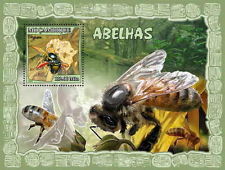Researchers from Mainz University Medical Center and Goethe University Frankfurt discovered that the use of active systemic insecticides called neonicotinoids causes the alarming bee mortality. The study was published in the journal PLOS ONE. It is led by Professor Ignatz Wessler of the Institute of Pathology at the University Medical Center of Johannes Gutenberg University Mainz and collaborated with Professor Bern Grunewald of the Bee Research Institute at Goethe University Frankfurt and other colleagues. This insecticide lessens the concentration of acetylcholine in the royal jelly/larval food secreted by nurse bees. It can also damage the microchannels of the royal jelly gland in which the acetylcholine is produced. The researchers also found that neonicotinoids impair the development of the honeybee larvae.
Professor Wessler explained that in 2013, the European Food Safety Authority printed a report determining that the neonicotinoid class of insecticides represented a risk to bees. He further explained that the undesirable effect of neonicotinoids now discovered is an indication that these insecticides represent a clear hazard to bee populations. He added that this factor must be taken into account in the approaching reassessment of the environmental risks of this substance class.
The researchers were able to demonstrate that neonicotinoids lessen the acetylcholine content of the larval food that was produced by nurse bees. Acetylcholine is a signaling molecule formed in the microchannels of the royal jelly gland of nurse bees.
Neonicotinoids are also referred to as neonics are neuroactive insecticides that are chemically the same with nicotine. Among the neonicotinoid family are the imidacloprid, which is the most commonly used insecticide in the world, nitenpyram, acetamiprid, thiacloprid, clothianidin, nithiazine and the thiamethoxam. It was linked to adverse ecological effects. The European Union and other EU countries prohibited the use of certain neonicotinoids in 2013.
Source: Science World Report, 25 June 2016
http://www.scienceworldreport.com/articles/42753/20160625/honeybees-new…

- Login om te reageren
